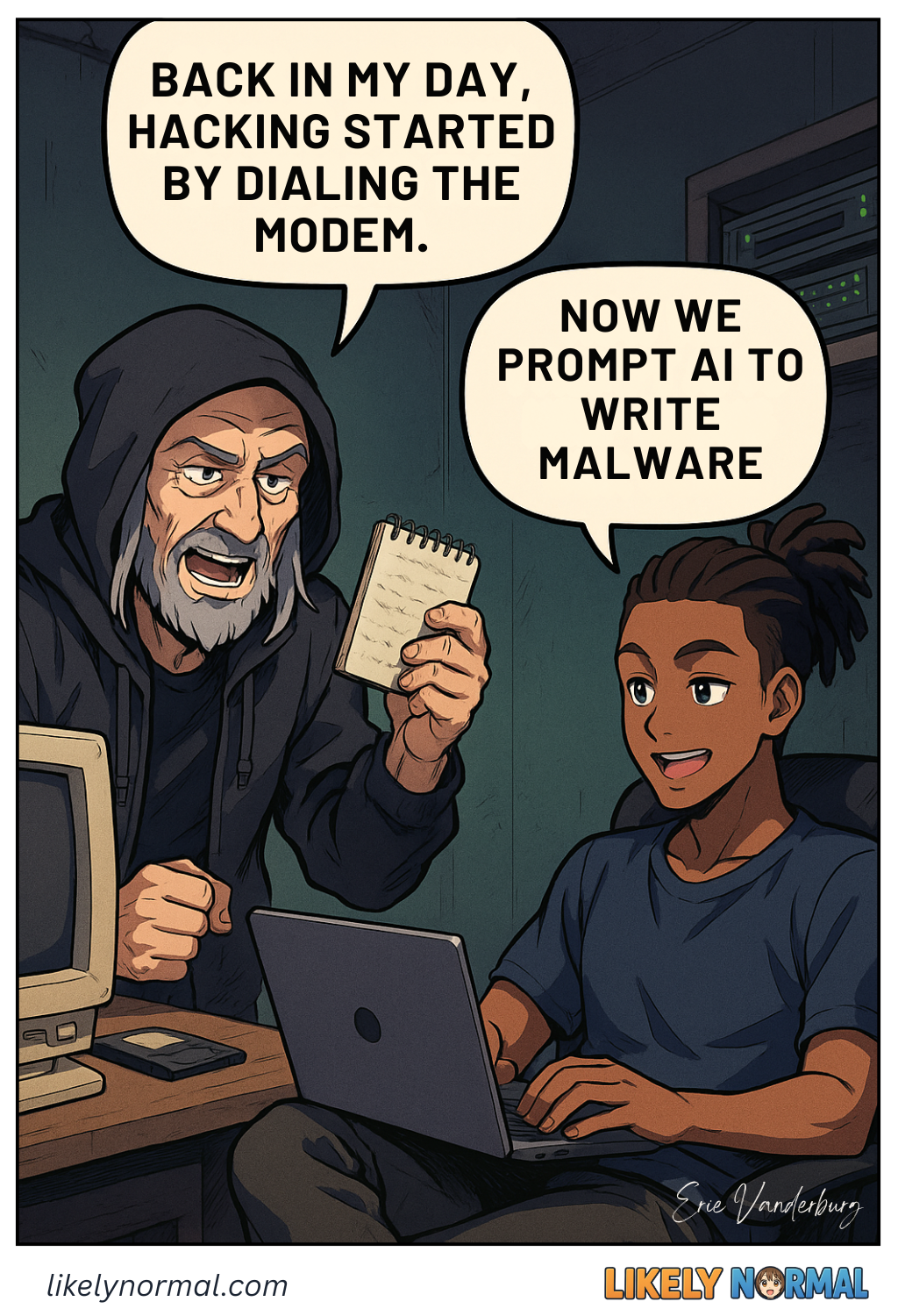From Phreaks to Prompts
Hacking was once a hobby for mischievous nerds in basements, now a multi-billion-dollar industry with more acronyms than a government conspiracy theory. When the Internet was still in its infancy and Bulletin Board Systems were all the range, I learned about the dark side, picking up the tricks of the trade, which I later applied to my cybersecurity career.
Back in the day, hacking was a simpler, more analog art form. You didn’t need a zero-day exploit—you needed a blue box, a book of phone numbers (yes, I still have mine, like a nerdy little black book of shame), and the sheer audacity to whistle 2600 Hz into a payphone. Phreaking was the gateway drug to hacking, and Ma Bell was our collective nemesis. If you got caught, the worst that happened was a stern lecture and maybe a visit from a very confused phone company rep.
Then came the ‘90s—the golden age of AOL floppy disks, screeching modems, and the intoxicating thrill of typing /c in a chatroom to pretend you were a hacker. Script kiddies were born, and suddenly, everyone with a copy of NetBus and a grudge against their math teacher was a cybercriminal. Meanwhile, actual hacking required patience, like waiting 45 minutes for a JPEG of a dancing baby to download.
Fast forward to today, and hacking is all AI-powered ransomware, state-sponsored espionage, and Twitter beef between cybersecurity influencers. Instead of wardialing for fun, we’re dealing with ransomware gangs who demand payment in Monero and leave customer service surveys after encrypting your files. (“How was your data breach experience? Rate 1-5!”)
And let’s talk about passwords. In the ‘90s, your password was probably “password”—or if you were really clever, “password1.” Now? You need a 32-character randomly generated string, changed every 14 seconds, stored in a biometric-locked vault guarded by a quantum AI. And even then, some guy in a hoodie named “xX_Dark_Sn1per_Xx” will still pwn you because you reused that password for your MySpace account in 2007.
So here’s to the evolution of hacking—from whistling into handsets to searching for zero days on sites translated from Russian. The tools have changed, the stakes are higher, and the FBI takes things way more seriously now. At least, now, you don’t have to worry about your mom picking up the phone and ruining your warez download.

Discussion ¬